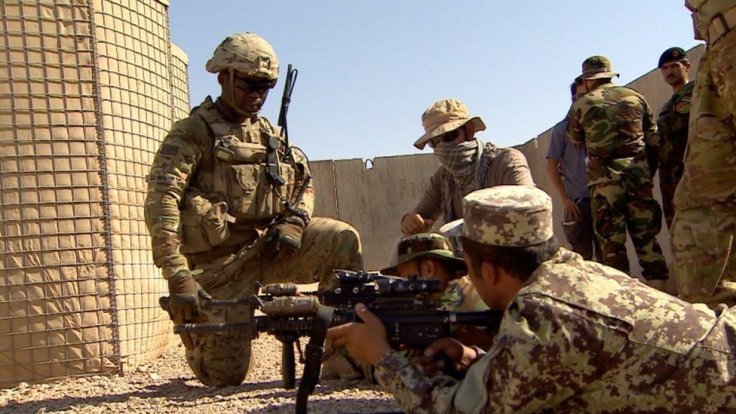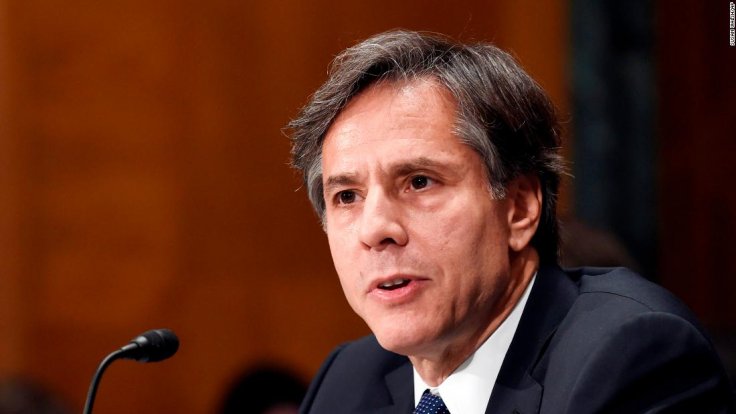In response to growing concerns about the Israel-Hamas conflict potentially targeting U.S. personnel, U.S. Defence Secretary Lloyd Austin has authorized the redeployment of a powerful strike group to the Persian Gulf, along with the dispatch of additional air defense systems to the region.
This move comes as approximately 2,000 troops have been placed on alert for potential deployment to the Gulf. Furthermore, the aircraft carriers USS Gerald Ford and USS Eisenhower, accompanied by fighter aircraft, have been positioned near Israeli waters.

Media reports have indicated that the USS Bataan, a third aircraft carrier, is also on standby for deployment as needed. The Biden administration's decision follows heightened apprehension regarding the expansion of the Israel-Hamas conflict, which could endanger U.S. personnel in the region, as reported by USA TODAY.
Safety concerns for American citizens escalated soon after Defence Secretary Lloyd Austin's announcement of the strike group's redeployment to the Persian Gulf and the reinforcement of air defense systems in the area. This decision comes in the wake of Hamas militants' incursion into Israeli territory, resulting in the tragic loss of civilian lives on October 7.
While the Biden administration has issued warnings to Iran, Hezbollah, and other adversaries of Israel to stay out of the conflict, there are growing doubts regarding their compliance with these warnings. Iran's Defence Minister has ominously suggested that "anything can happen anytime" if Israel conducts a ground invasion of Gaza, thereby implying a potential involvement in the conflict.
Defence Secretary Lloyd Austin emphasized the increasing risk to U.S. troops and personnel in the region, stating that they are taking necessary measures to ensure the ability to respond effectively.

Secretary of State Antony Blinken shared these concerns, expressing an expectation of escalation from Iranian proxies directed against U.S. forces. He underlined their preparations to protect U.S. personnel and respond decisively, hoping to avert the emergence of additional fronts in the conflict, notably the involvement of Lebanon-based Hezbollah.
Concurrently, the second convoy of aid trucks has reached Gaza, delivering essential supplies like food and water. Aid agencies on the ground, including the Red Cross and UN affiliates, have appealed for more relief aid. They have also requested Israel's cooperation in permitting fuel to power generators in Gaza, where electricity shortages, particularly in hospitals, have reached critical levels.
Israeli authorities are closely monitoring the entry of relief supplies into Gaza, ensuring that they reach civilians and are not seized by Hamas.
In a separate development, UN Secretary-General Antonio Guterres visited the Rafah crossing in Egypt and observed the second convoy of relief trucks entering Gaza. However, Guterres noted that the aid provided was insufficient, given the 2.1 million Palestinian civilians residing in Gaza. He urged for additional assistance to be delivered promptly.
The situation in southern border areas has led to an estimated 700,000 people seeking refuge, with around 200 trucks lined up at the Rafah crossing, as revealed by aerial satellite photos.
Moreover, the Israel Defense Forces (IDF) reported on Monday that they have notified 222 families of hostages, including some foreign nationals. This number has risen from 212 on the previous day. The anticipated large-scale ground assault by the IDF appears to be on hold as the U.S. has advised Israeli Prime Minister Benjamin Netanyahu to delay it until the hostages are released.
The U.S. has also urged Israel to postpone its ground invasion of Gaza to facilitate hostage negotiations, enhance humanitarian aid distribution, and prepare for potential attacks on "U.S. interests" in the region, according to multiple media reports.
Notably, the U.S. is in full support of Israel's planned ground invasion, aiming to ensure that events continue to develop at a pace conducive to negotiation for the release of additional hostages and the efficient delivery of humanitarian aid.








